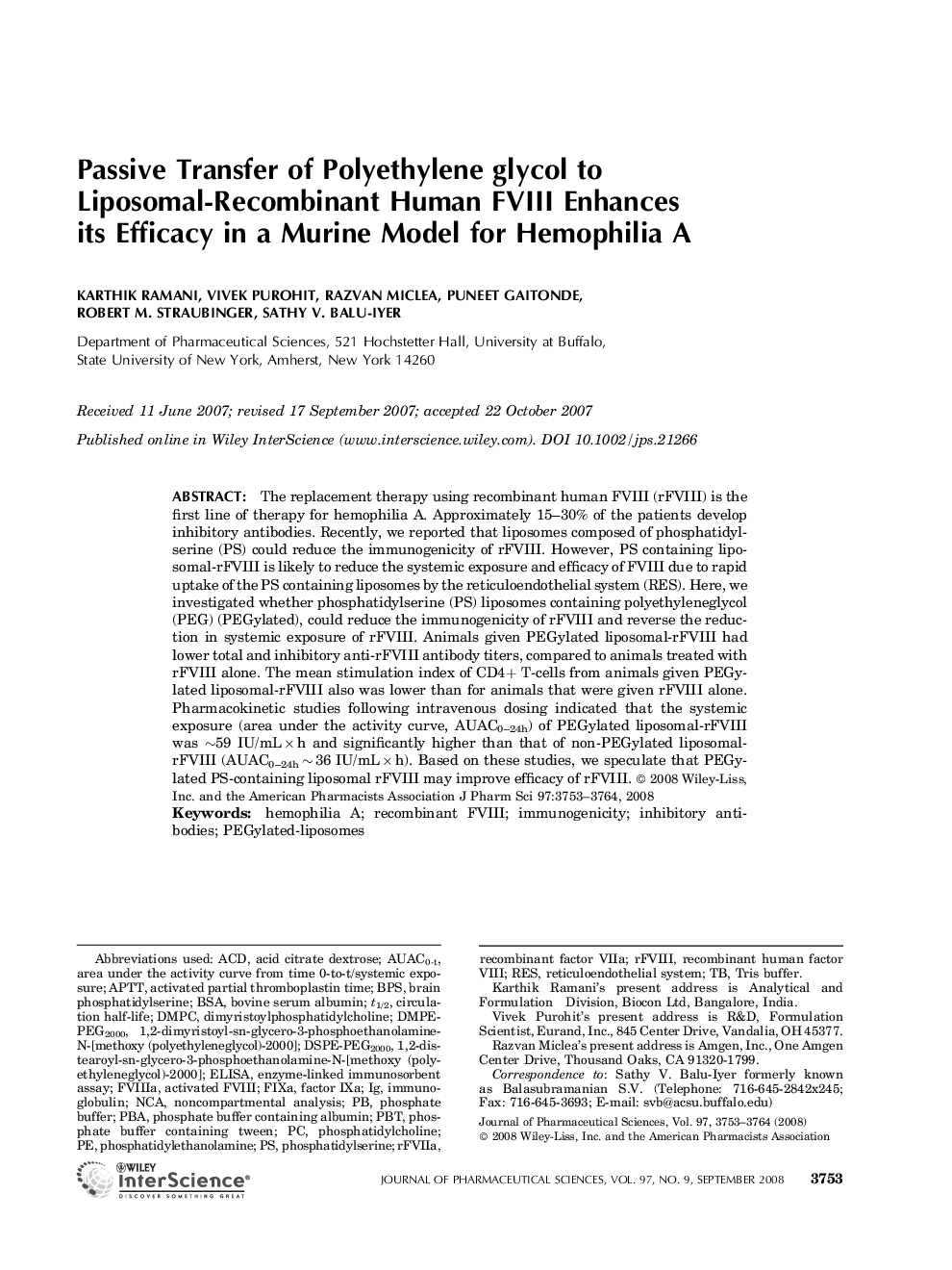| Article ID | Journal | Published Year | Pages | File Type |
|---|---|---|---|---|
| 2487255 | Journal of Pharmaceutical Sciences | 2008 | 12 Pages |
Abstract
The replacement therapy using recombinant human FVIII (rFVIII) is the first line of therapy for hemophilia A. Approximately 15-30% of the patients develop inhibitory antibodies. Recently, we reported that liposomes composed of phosphatidylserine (PS) could reduce the immunogenicity of rFVIII. However, PS containing liposomal-rFVIII is likely to reduce the systemic exposure and efficacy of FVIII due to rapid uptake of the PS containing liposomes by the reticuloendothelial system (RES). Here, we investigated whether phosphatidylserine (PS) liposomes containing Polyethylene glycol (PEG) (PEGylated), could reduce the immunogenicity of rFVIII and reverse the reduction in systemic exposure of rFVIII. Animals given PEGylated liposomal-rFVIII had lower total and inhibitory anti-rFVIII antibody titers, compared to animals treated with rFVIII alone. The mean stimulation index of CD4+ T-cells from animals given PEGylated liposomal-rFVIII also was lower than for animals that were given rFVIII alone. Pharmacokinetic studies following intravenous dosing indicated that the systemic exposure (area under the activity curve, AUAC0-24h) of PEGylated liposomal-rFVIII was ~59 IU/mLâÃâh and significantly higher than that of non-PEGylated liposomal-rFVIII (AUAC0-24hâ~â36 IU/mLâÃâh). Based on these studies, we speculate that PEGylated PS-containing liposomal rFVIII may improve efficacy of rFVIII.
Keywords
rFVIIa, recombinant factor VIIaACD, Acid citrate dextroseDMPC, dimyristoylphosphatidylcholinePB, phosphate bufferRES, reticuloendothelial systemTB, Tris bufferBSA, bovine serum albuminInhibitory antibodiesImmunogenicityELISA, enzyme-linked immunosorbent assayaPTT, activated partial thromboplastin timePE, phosphatidylethanolaminePS, phosphatidylserinePC, phosphatidylcholineHemophilia AIg, immunoglobulin
Related Topics
Health Sciences
Pharmacology, Toxicology and Pharmaceutical Science
Drug Discovery
Authors
Karthik Ramani, Vivek Purohit, Razvan Miclea, Puneet Gaitonde, Robert M. Straubinger, Sathy V. Balu-Iyer,
